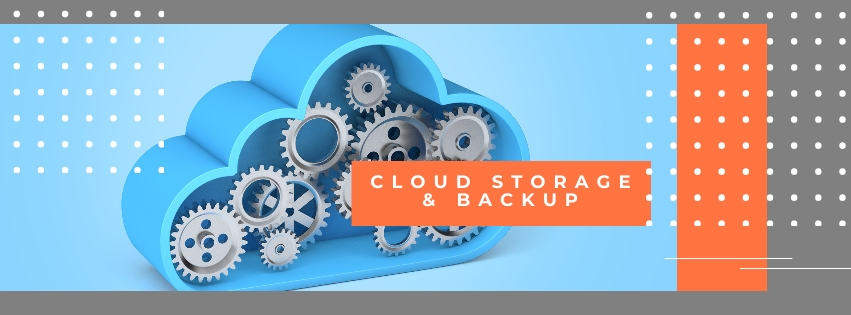Last updated: October 22, 2025
Choosing the right business software can feel like navigating a complex maze. With so many options available, how do you select tools that actually fit your needs rather than adding to your workload? This guide cuts through the noise with practical recommendations for the best small business software in 2025.
We've analyzed current market leaders across essential software categories to help you make informed decisions that support growth, streamline operations, and protect your investment.
Key Takeaway: The right software stack can transform your small business operations, but success depends on choosing tools that match your specific needs, integrate well together, and scale as you grow. This guide provides current recommendations for 2025 across all essential categories, from accounting and project management to AI tools and cybersecurity.
Software Selection at a Glance
| Software Category | Top Recommendations 2025 | When It's Most Essential | Key Decision Factors |
|---|---|---|---|
| Accounting & Finance | QuickBooks Online, Xero, FreshBooks, Wave | Tracking income and expenses, managing invoices, tax preparation, and financial reporting | Business size, inventory needs, number of users, integration requirements |
| CRM | HubSpot CRM, Salesforce, Zoho CRM, Pipedrive | Managing customer relationships, sales pipelines, lead nurturing, and marketing automation. | Sales team size, automation needs, marketing integration, scalability |
| Project Management | Asana, Monday.com, Trello, ClickUp | Team collaboration, task tracking, deadline management, workflow visualization | Team size, project complexity, visual preferences, and budget constraints |
| Productivity & Collaboration | Google Workspace, Microsoft 365, Notion | Document collaboration, file sharing, email hosting, and real-time communication | Existing ecosystem, collaboration style, security requirements, and budget |
| Marketing Automation | HubSpot Marketing Hub, Mailchimp, ActiveCampaign, Klaviyo | Email campaigns, customer segmentation, lead nurturing, marketing analytics | Campaign complexity, CRM integration, subscriber count, e-commerce needs |
| Communication | Zoom, Microsoft Teams, Slack, Google Meet | Video meetings, team chat, screen sharing, client presentations | Meeting frequency, team collaboration style, and integration needs |
| Cloud Storage & Backup | Google Drive, Dropbox Business, Microsoft OneDrive, Backblaze | Secure file storage, remote access, data protection, and team collaboration | Storage capacity, security requirements, sync functionality, pricing |
| Help Desk & Support | Zendesk, Freshdesk, HubSpot Service Hub, Jira Service Management | Customer ticket management, knowledge base creation, and IT support workflows | Support volume, integration requirements, and self-service needs |
| AI Tools | ChatGPT, Claude, Google Gemini, Microsoft Copilot, Grammarly | Content creation, data analysis, coding assistance, automation, research | Use case specificity, data privacy, integration needs, and budget |
| Cybersecurity | 1Password, Malwarebytes, NordLayer, Acronis Cyber Protect | Password management, endpoint protection, VPN access, backup security | Threat level, compliance requirements, and remote workforce size |

Accounting & Finance Software
Accounting software provides the financial foundation for business decision-making. The right platform tracks income and expenses, streamlines invoicing, simplifies tax preparation, and generates reports that reveal your business's financial health. In 2025, cloud-based solutions dominate this space, offering accessibility, automatic backups, and real-time financial visibility.
Our Top Accounting Software Recommendations for 2025:
QuickBooks Online
Best for: Small to mid-sized businesses needing comprehensive features and strong ecosystem integration
QuickBooks maintains its position as the industry standard with 85% market share among small businesses. The platform offers robust invoicing, expense tracking, tax preparation assistance, and extensive reporting capabilities. QuickBooks integrates with over 750 business applications and provides both desktop and cloud-based options.
2025 Pricing: Plans range from $35/month (Simple Start) to $200/month (Advanced), with a 30-day free trial available. First-time users often receive promotional discounts for the first three months.
Key Features: Advanced inventory management, multi-currency support, mileage tracking, comprehensive financial reporting, payroll integration, project profitability tracking
Consider QuickBooks if you need detailed financial reporting, manage inventory, want extensive third-party integrations, or require accountant collaboration features.
Xero
Best for: Growing teams requiring unlimited users and strong collaboration features
Xero has earned recognition as a top QuickBooks alternative, offering unlimited users at every pricing tier—a significant advantage for growing businesses. The platform excels at bank reconciliation, bill payment management, and multi-currency transactions, making it ideal for international operations. Xero's clean interface and strong API make it particularly appealing to businesses prioritizing third-party app integration.
2025 Pricing: Early ($12/month with limited invoices), Growing ($32/month), and Established ($62/month). All plans include unlimited users. 30-day free trial available.
Key Features: Unlimited users on all plans, comprehensive project tracking, strong multi-currency support, batch payment processing, extensive reporting, and inventory management
Consider Xero if you have a growing team that needs collaborative access, operates internationally, prioritizes bill payment workflows, or wants cost-effective per-user pricing.
FreshBooks
Best for: Service-based businesses, freelancers, and consultants prioritizing invoicing and time tracking
FreshBooks specializes in making accounting accessible for non-accountants. The platform's user-friendly interface, excellent invoicing tools, and integrated time tracking make it particularly appealing to creative professionals, consultants, and service providers. While it lacks some advanced accounting features found in QuickBooks or Xero, FreshBooks compensates with simplicity and client-focused functionality.
2025 Pricing: Lite ($19/month for 5 billable clients), Plus ($33/month for 50 clients), Premium ($60/month for unlimited clients). Save 10% with annual billing. 30-day free trial with no credit card required.
Key Features: Professional invoice customization, automated payment reminders, time tracking, expense tracking, project management, mobile apps, client portal
Consider FreshBooks if you're a service provider or freelancer billing clients based on time, need simple yet professional invoicing, or prefer an intuitive interface over complex accounting features.
Wave Accounting
Best for: Very small businesses and solopreneurs on tight budgets
Wave offers free accounting, invoicing, and receipt scanning—an unbeatable value for micro-businesses. While the free tier includes most essential features, Wave generates revenue through paid add-ons like payroll and payment processing. The platform works well for businesses with straightforward accounting needs and limited transaction volume.
2025 Pricing: Core accounting and invoicing are free. Payment processing fees apply (2.9% + $0.60 for credit cards). Payroll starts at $20/month plus $6 per employee.
Key Features: Unlimited income and expense tracking, invoicing, receipt scanning, basic reporting, and bank connections
Consider Wave if: You're just starting out, have minimal transactions, need basic accounting functionality, or want to test accounting software before investing.
Decision Framework: Choosing Your Accounting Software
Choose QuickBooks Online if:
- You need comprehensive features, including inventory management
- Financial reporting and tax preparation are priorities
- You want the most established ecosystem with maximum integration options
- You're willing to invest in robust accounting functionality
Choose Xero if:
- You have a growing team requiring unlimited user access
- International operations and multi-currency support are important
- Bill payment workflows and vendor management are priorities
- You want cost-effective pricing that scales with your business
Choose FreshBooks if:
- You're a service provider billing clients for time and projects
- User-friendliness and simplicity outweigh advanced accounting features
- Client communication and professional invoicing are critical
- You prefer intuitive software over complex accounting platforms
Choose Wave if:
- Budget constraints are significant
- Your business has minimal transaction volume
- You need basic accounting without advanced features
- You're testing accounting software before committing to paid options

Customer Relationship Management (CRM)
CRM software centralizes customer data, tracks interactions, and helps manage sales pipelines. The right CRM transforms how you nurture leads, close deals, and maintain customer relationships. In 2025, the best CRM platforms offer sales automation, marketing integration, and analytics that provide actionable insights into customer behavior.
Top CRM Platforms for Small Businesses in 2025:
HubSpot CRM
Best for: Businesses wanting a free, full-featured CRM with optional paid marketing and sales tools
HubSpot's free CRM includes unlimited users, contacts, and data storage—making it the most generous free option available. The platform excels at contact management, deal tracking, and email integration. As your needs grow, HubSpot offers seamless upgrades to Marketing Hub, Sales Hub, and Service Hub, creating an all-in-one business growth platform.
2025 Pricing: Free CRM with unlimited users. Marketing Hub starts at $45/month, Sales Hub at $45/month, and Service Hub at $45/month. Professional tiers range from $450-$800/month.
Key Features: Contact and deal management, email tracking, meeting scheduling, live chat, reporting dashboards, marketing automation (paid tiers), sales sequences, customer service tickets
Consider HubSpot if: You want a free CRM to start with scalability options, plan to integrate marketing automation, value ease of use, or need an all-in-one platform.
Salesforce
Best for: Growing businesses needing enterprise-level features and extensive customization
Salesforce remains the gold standard for CRM sophistication and customization. While the platform has a steeper learning curve, it offers unmatched flexibility, robust automation, and comprehensive reporting. Salesforce's AppExchange marketplace provides thousands of integrations and extensions.
2025 Pricing: Starter Suite ($25/user/month), Professional ($80/user/month), Enterprise ($165/user/month), and Unlimited ($330/user/month). A 30-day free trial is available.
Key Features: Advanced sales forecasting, opportunity management, workflow automation, comprehensive analytics, AI-powered Einstein insights, extensive customization, AppExchange integrations
Consider Salesforce if: You're scaling rapidly, need complex sales workflows, require extensive customization, have dedicated CRM administrators, or plan significant sales team growth.
Zoho CRM
Best for: Budget-conscious businesses wanting comprehensive features without enterprise pricing
Zoho CRM delivers impressive functionality at competitive prices. The platform offers robust sales automation, multi-channel communication, and AI-powered sales assistance. Zoho's strength lies in its integration with the broader Zoho ecosystem, providing seamless connections to Zoho Books (accounting), Zoho Projects, and 40+ other Zoho applications.
2025 Pricing: There is a free plan for 3 users, Standard ($14/user/month), Professional ($23/user/month), and Enterprise ($40/user/month). A 15-day free trial is available.
Key Features: Lead and contact management, sales automation, email campaigns, social media integration, AI assistant (Zia), workflow automation, mobile CRM, reporting, and analytics
Consider Zoho if: Budget is a primary concern, you use or plan to use other Zoho applications, you want AI-powered sales assistance, or you need solid functionality without premium pricing.
Pipedrive
Best for: Sales teams prioritizing visual pipeline management and deal tracking
Pipedrive focuses specifically on sales pipeline visualization and deal management. The platform's visual interface makes it easy to track deals through each stage, identify bottlenecks, and forecast revenue. Pipedrive's simplicity and sales-specific focus make it an excellent choice for teams that find general CRMs overly complex.
2025 Pricing: Essential ($14/user/month), Advanced ($34/user/month), Professional ($49/user/month), Power ($64/user/month), and Enterprise ($99/user/month). A 14-day free trial is available.
Key Features: Visual sales pipeline, deal tracking, activity scheduling, email integration, sales reporting, lead management, workflow automation, mobile app
Consider Pipedrive if: Your primary focus is sales pipeline management, you want intuitive visual interfaces, you find traditional CRMs too complex, or you need straightforward deal tracking.

Project Management Software
Project management software keeps teams organized, tracks progress, and ensures deadline adherence. These platforms transform chaotic workflows into structured processes with clear accountability and visibility. In 2025, the best project management tools offer flexibility to match various work styles while maintaining simplicity.
Leading Project Management Platforms for 2025:
Asana
Best for: Teams wanting flexible task management with multiple view options
Asana provides versatile project visualization through list, board, timeline, and calendar views. The platform excels at breaking down complex projects into manageable tasks, setting dependencies, and tracking progress across multiple projects. Asana's clean interface and robust free tier make it accessible to small teams while offering scalability for larger organizations.
2025 Pricing: Free for up to 15 team members, Starter ($10.99/user/month), Advanced ($24.99/user/month), Enterprise (custom pricing). Annual billing offers 16% savings.
Key Features: Multiple project views, task dependencies, custom fields, workflow automation, project templates, workload management, reporting dashboards, 100+ integrations
Consider Asana if: You need flexible project visualization, manage multiple interconnected projects, want task dependencies and timelines, or value a generous free tier.
Monday.com
Best for: Teams prioritizing visual workflow management and customization
Monday.com stands out for its colorful, highly visual interface and extensive customization options. The platform adapts to various use cases beyond project management, including CRM, product development, and marketing campaign tracking. Monday.com's strength lies in its flexibility and ability to create custom workflows that match your specific processes.
2025 Pricing: Free for individuals (2 seats), Basic ($9/seat/month), Standard ($12/seat/month), Pro ($19/seat/month), Enterprise (custom pricing). 14-day free trial available.
Key Features: Customizable boards, automation builder, multiple views (kanban, Gantt, calendar), time tracking, integrations, dashboards, workload management, resource planning
Consider Monday.com if: You want highly customizable workflows, appreciate visual project management, need flexible boards for various use cases, or want to consolidate multiple tools.
Trello
Best for: Teams wanting simple, visual kanban-style project management
Trello pioneered the visual kanban board approach, which remains the simplest project management option. The platform's card-and-board system makes it intuitive for tracking tasks through stages. While Trello lacks some advanced features found in Asana or Monday.com, its simplicity makes it ideal for teams wanting straightforward task management without complexity.
2025 Pricing: Free (unlimited cards, 10 boards), Standard ($5/user/month), Premium ($10/user/month), Enterprise ($17.50/user/month). 14-day free trial for paid plans.
Key Features: Kanban boards, card-based task management, labels and tags, due dates, checklists, attachments, Power-Ups (integrations), automation (Butler), mobile apps
Consider Trello if you prefer visual simplicity, want straightforward task tracking, need quick team onboarding, or want to manage projects with clear stage progressions.
ClickUp
Best for: Teams wanting an all-in-one work management platform with extensive features
ClickUp aims to replace multiple tools with one comprehensive platform. It combines project management, document collaboration, goal tracking, and time management in a feature-rich environment. While the learning curve is steeper than simpler alternatives, ClickUp's depth appeals to teams wanting maximum functionality and customization.
2025 Pricing: Free Forever (unlimited tasks and members), Unlimited ($7/user/month), Business ($12/user/month), Enterprise (custom pricing). 14-day free trial for paid plans.
Key Features: Multiple views (List, Board, Gantt, Calendar, Timeline), docs and wikis, goals and OKRs, time tracking, custom fields, automations, dashboards, mind maps, integrations
Consider ClickUp if you want to consolidate multiple tools, need comprehensive features, value customization over simplicity, or want extensive free-tier capabilities.

Productivity & Collaboration
Productivity suites form the backbone of modern business operations, enabling document creation, file sharing, email communication, and real-time collaboration. These platforms determine how your team creates, shares, and collaborates on work. In 2025, the choice between ecosystems—Google, Microsoft, or alternative platforms—significantly impacts daily workflows.
Top Productivity Platforms for 2025:
Google Workspace
Best for: Teams prioritizing real-time collaboration and cloud-first workflows
Google Workspace excels at simultaneous collaboration, with multiple users editing documents, spreadsheets, and presentations in real time. The platform's strength lies in its simplicity, generous storage, and seamless integration across Gmail, Drive, Docs, Sheets, Slides, and Meet. In 2025, Google's AI-powered features will include smart compose, grammar suggestions, and automated data analysis.
2025 Pricing: Business Starter ($6 per user/month, 30GB storage), Business Standard ($12 per user/month, 2TB storage), Business Plus ($18 per user/month, 5TB storage), and Enterprise (custom pricing, unlimited storage). A 14-day free trial is available.
Key Features: Gmail business email, Google Drive storage, real-time document collaboration, Google Meet video conferencing, shared calendars, Google Forms, Google Sites, mobile apps, and AI assistance
Consider Google Workspace if: Real-time collaboration is pa riority, you prefer cloud-first solutions, want simple user interfaces, need generous storage, or have remote/distributed teams.
Microsoft 365
Best for: Businesses requiring comprehensive Office applications and enterprise features
Microsoft 365 delivers the full Office suite (Word, Excel, PowerPoint, Outlook) plus cloud storage, Teams collaboration, and enterprise security features. The platform's 2025 integration of Microsoft Copilot AI provides advanced assistance across all applications. Microsoft 365 excels for businesses requiring robust security, compliance features, and advanced desktop application capabilities.
2025 Pricing: Business Basic ($6/user/month, web apps only), Business Standard ($12.50/user/month, desktop apps included), Business Premium ($22/user/month, advanced security), Enterprise E3/E5 (custom pricing). 30-day free trial available.
Key Features: Full Office desktop apps, OneDrive cloud storage, Microsoft Teams, Exchange email, SharePoint collaboration, advanced security, Microsoft Copilot AI, Power Apps, Power Automate
Consider Microsoft 365 if: You need full desktop Office applications, require advanced security features, want Microsoft Teams collaboration, need compliance tools, or have an existing Microsoft infrastructure.
Notion
Best for: Teams wanting a flexible, all-in-one workspace for notes, docs, wikis, and project management
Notion provides a modular approach to productivity, combining note-taking, documentation, wikis, databases, and project management in one flexible platform. While it doesn't replace email or video conferencing, Notion excels as a knowledge management and collaboration hub. Its block-based system allows teams to create custom workflows and documentation structures.
2025 Pricing: Free for individuals, Plus ($8/user/month), Business ($15/user/month), Enterprise (custom pricing). Educational discounts available.
Key Features: Flexible page creation, databases, wikis, templates, collaboration tools, API integrations, version history, real-time editing, AI-powered writing assistance
Consider Notion if: You want flexible workspace customization, need knowledge management capabilities, value creative documentation options, or want to consolidate notes and wikis.

Marketing Automation
Marketing automation platforms help businesses segment audiences, nurture leads, and execute campaigns efficiently. These tools move beyond basic email newsletters to provide personalized customer journeys, behavioral triggers, and performance analytics. In 2025, the best marketing automation platforms integrate seamlessly with CRM systems and provide AI-powered campaign optimization.
Top Marketing Automation Platforms for 2025:
HubSpot Marketing Hub
Best for: Businesses wanting integrated marketing, sales, and CRM in one platform
HubSpot Marketing Hub provides comprehensive inbound marketing tools that are tightly integrated with HubSpot CRM. The platform excels at email marketing, landing page creation, social media management, and marketing analytics. HubSpot's strength lies in its unified approach—marketing, sales, and service teams work from the same customer data, enabling coordinated campaigns and better lead nurturing.
2025 Pricing: Free tools are available. Starter ($45/month), Professional ($800/month), and Enterprise ($3,600/month) pricing includes 1,000 marketing contacts; additional contacts increase the cost.
Key Features: Email marketing, landing pages, forms, social media scheduling, blog hosting, SEO tools, marketing automation workflows, lead scoring, analytics dashboards, A/B testing
Consider HubSpot Marketing Hub if you use HubSpot CRM, want an all-in-one marketing platform, need inbound marketing tools, and value integrated sales and marketing data.
Mailchimp
Best for: Small businesses wanting accessible email marketing with scalability options
Mailchimp has evolved from a simple email service to a comprehensive marketing platform. The tool offers email campaigns, audience segmentation, automation workflows, and basic CRM functionality. Mailchimp's user-friendly interface and generous free tier make it accessible to small businesses, while paid plans offer advanced automation and detailed analytics.
2025 Pricing: Free for up to 500 contacts, Essentials ($13/month), Standard ($20/month), Premium ($350/month). Pricing scales with contact count.
Key Features: Email campaigns, audience segmentation, automation workflows, landing pages, forms, social media ads, basic CRM, analytics and reporting, A/B testing, mobile app
Consider Mailchimp if you're starting with email marketing, want a user-friendly interface, need accessible pricing, or manage smaller contact lists.
ActiveCampaign
Best for: Businesses requiring sophisticated automation and CRM integration
ActiveCampaign specializes in marketing automation depth, offering advanced conditional workflows, behavioral triggers, and predictive sending. The platform combines email marketing, marketing automation, sales automation, and CRM in one system. ActiveCampaign's automation capabilities surpass simpler competitors, making it ideal for businesses with complex customer journeys.
2025 Pricing: Lite ($15/month), Plus ($70/month), Professional ($187/month), and Enterprise ($323/month). Pricing is based on contact count, starting at 1,000 contacts.
Key Features: Advanced automation workflows, email marketing, SMS marketing, CRM with sales automation, lead scoring, split testing, site tracking, attribution, predictive sending, machine learning
Consider ActiveCampaign if: You need sophisticated automation, want CRM integration, require complex workflows, or are growing beyond basic email marketing.
Klaviyo
Best for: E-commerce businesses requiring data-driven email and SMS marketing
Klaviyo dominates e-commerce marketing automation with deep integration into Shopify, WooCommerce, BigCommerce, and other platforms. The tool excels at using purchase behavior, browsing history, and customer data to create highly targeted campaigns. Klaviyo's predictive analytics help forecast customer lifetime value and identify optimal sending times.
2025 Pricing: Free for up to 250 contacts, email plans start at $20/month, email + SMS plans start at $35/month. Pricing scales with contact count and message volume.
Key Features: E-commerce integrations, behavioral targeting, segmentation, automated flows, A/B testing, SMS marketing, predictive analytics, customer lifetime value tracking, revenue attribution
Consider Klaviyo if: You operate an e-commerce business, need shopping platform integration, want data-driven marketing, or require SMS marketing capabilities.

Communication Tools
Communication platforms enable video meetings, team chat, and client presentations. These tools became essential during remote work shifts and remain critical for hybrid teams in 2025. The right communication platform balances video quality, reliability, ease of use, and integration with other business tools.
Leading Communication Platforms for 2025:
Zoom
Best for: Reliable video conferencing with clients and large meetings
Zoom maintains its position as the video conferencing standard for external meetings and webinars. The platform's reliability, ease of use, and widespread adoption make it the default choice for client meetings. Zoom's 2025 features include AI-powered meeting summaries, real-time translation, and enhanced security controls.
2025 Pricing: Basic (free, 40-minute limit on group meetings), Pro ($149/year per user), Business ($199/year per user), Enterprise (custom pricing). Annual billing offers savings.
Key Features: HD video and audio, screen sharing, recording, breakout rooms, virtual backgrounds, waiting rooms, webinar hosting, AI-powered meeting notes, whiteboard collaboration
Consider Zoom if: You host frequent client meetings, conduct webinars, need reliable video quality, or want universal meeting platform recognition.
Microsoft Teams
Best for: Organizations using Microsoft 365 wanting integrated team collaboration
Microsoft Teams is a platform that combines chat, video conferencing, file sharing, and application integration. It excels at internal collaboration, particularly for organizations already using Microsoft 365. The platform's tight integration with Office apps, SharePoint, and OneDrive creates a unified work environment.
2025 Pricing: Free (limited features), Microsoft 365 Business Basic includes Teams ($6/user/month), Business Standard ($12.50/user/month), Business Premium ($22/user/month).
Key Features: Team chat channels, video meetings, file sharing, Office app integration, third-party app integrations, meeting recording, live captions, virtual backgrounds, together mode
Consider Teams if you use Microsoft 365, want an integrated collaboration platform, need persistent team chat, or prefer a unified Microsoft ecosystem.
Slack
Best for: Team messaging and asynchronous communication
Slack pioneered the modern team chat experience and remains the leader for channel-based messaging and asynchronous collaboration. While Slack offers video calling, its strength lies in organized conversations, searchable message history, and extensive integrations. Slack's workflow automation and app ecosystem make it powerful for team coordination.
2025 Pricing: Free (limited message history), Pro ($7.25/user/month), Business+ ($12.50/user/month), Enterprise Grid (custom pricing). Annual billing offers savings.
Key Features: Channel-based messaging, direct messages, file sharing, search functionality, voice and video calls, workflow automation, 2,400+ app integrations, message threads
Consider Slack if: You prioritize team chat over video, want extensive app integrations, need organized communication channels, or have distributed teams.
Google Meet
Best for: Teams using Google Workspace wanting integrated video conferencing
Google Meet provides reliable video conferencing tightly integrated with Google Workspace. Meeting links connect directly to Calendar events, and recordings save automatically to Drive. Meet's simplicity and no-download requirement (web-based) make it accessible for quick meetings. The platform includes AI-powered features like live captions and background noise cancellation.
2025 Pricing: Three pricing plans are included with Google Workspace: Business Starter ($6 per user/month), Business Standard ($12 per user/month), and Business Plus ($18 per user/month). A free version is available with a 60-minute meeting limit.
Key Features: HD video conferencing, screen sharing, recording, live captions, breakout rooms, polls and Q&A, virtual backgrounds, noise cancellation, Calendar integration
Consider Google Meet if: You use Google Workspace, want calendar integration, need simple video conferencing, or prefer web-based meetings without downloads.

Cloud Storage & Backup
Cloud storage enables secure file access from anywhere while protecting against local hardware failures. These platforms provide more than just storage—they offer file sharing, version history, collaboration features, and automated backups. In 2025, cloud storage is essential infrastructure for modern businesses, particularly those with remote or hybrid teams.
Top Cloud Storage Solutions for 2025:
Google Drive (via Google Workspace)
Best for: Teams prioritizing collaboration and real-time document editing
Google Drive excels at collaborative workflows, with seamless integration across Google Docs, Sheets, and Slides. The platform's strength lies in simultaneous editing, generous storage tiers, and powerful search capabilities. Drive's file sharing controls allow management of granular permissions.
2025 Pricing: Included with Google Workspace: Business Starter (30GB/user, $6/user/month), Business Standard (2TB/user, $12/user/month), Business Plus (5TB/user, $18/user/month), Enterprise (unlimited, custom pricing).
Key Features: Cloud file storage, real-time collaboration, version history, file sharing with permissions, Google Docs/Sheets/Slides integration, powerful search, mobile access, offline access
Consider Google Drive if you use Google Workspace, prioritize collaborative editing, need generous storage, or want powerful search capabilities.
Dropbox Business
Best for: Businesses requiring reliable file sync and external file sharing
Dropbox focuses on reliable file synchronization across devices and excellent external sharing capabilities. The platform's Smart Sync feature allows accessing cloud files without consuming local storage. Dropbox excels at file versioning, recovery options, and integration with popular business applications.
2025 Pricing: Plus (2TB individual, $11.99/month), Professional (3TB individual, $19.99/month), Business (5TB+ per team, $18/user/month), Business Plus (15TB+ per team, $30/user/month).
Key Features: File sync across devices, Smart Sync, version history (30-180 days), file recovery, external sharing, Dropbox Paper for collaboration, mobile scanning, integration marketplace
Consider Dropbox if you need reliable sync, frequently share files externally, want simple file management, or require extensive recovery options.
Microsoft OneDrive (via Microsoft 365)
Best for: Organizations using Microsoft 365 wanting integrated cloud storage
OneDrive provides seamless integration with Microsoft Office applications, enabling cloud-based document creation and collaboration. The platform's Files On-Demand feature allows accessing cloud files without local storage consumption. OneDrive excels for businesses already invested in the Microsoft ecosystem.
2025 Pricing: Included with Microsoft 365 are Business Basic (1TB/user, $6/user/month), Business Standard (1TB/user, $12.50/user/month), and Business Premium (1TB/user, $22/user/month). Standalone OneDrive for Business (1TB, $5/user/month) is also available.
Key Features: Cloud file storage, Office app integration, Files On-Demand, version history, file sharing, real-time collaboration, ransomware detection and recovery, mobile apps
Consider OneDrive if you use Microsoft 365, work primarily in Office applications, need Microsoft Teams integration, or want a unified Microsoft ecosystem.
Backblaze
Best for: Businesses prioritizing automated computer backup and disaster recovery
Backblaze focuses specifically on automated backup rather than file sync and sharing. The platform continuously backs up computers, providing unlimited cloud backup for a flat fee. Backblaze excels at disaster recovery, offering options to restore via download, mail delivery on a USB drive, or overnight hard drive shipment.
2025 Pricing: Personal ($9/month or $99/year for unlimited backup per computer), Business ($20/month per computer). B2 Cloud Storage (pay for what you use, starting at $6/TB/month).
Key Features: Continuous automatic backup, unlimited storage (per computer), file versioning (30 days to forever), mobile access, external drive backup, restore options (download, USB, overnight drive), encryption
Consider Backblaze if Backup is a priority over collaboration, you need disaster recovery, want unlimited backup storage, or require simple automated protection.

Help Desk & Customer Support
Help desk software organizes customer support tickets, creates self-service knowledge bases, and manages IT issues. These platforms transform chaotic email-based support into structured workflows with accountability and metrics. In 2025, the best help desk solutions offer omnichannel support, automation, and customer satisfaction tracking.
Leading Help Desk Platforms for 2025:
Zendesk
Best for: Businesses requiring comprehensive customer support across multiple channels
Zendesk provides enterprise-grade customer support features with omnichannel ticket management (email, chat, phone, social media). The platform excels at creating a self-service knowledge base, automating workflows, and providing comprehensive reporting. Zendesk's scalability makes it suitable for growing businesses planning significant support expansion.
2025 Pricing: Support Team ($19/agent/month), Support Professional ($55/agent/month), and Support Enterprise ($115/agent/month). Suite plans bundle additional features at higher prices. A 14-day free trial is available.
Key Features: Omnichannel ticketing, knowledge base, live chat, automation and triggers, reporting and analytics, mobile apps, community forums, AI-powered responses, integration marketplace
Consider Zendesk if you need omnichannel support, plan to scale significantly, require comprehensive reporting, or want an established enterprise platform.
Freshdesk
Best for: Small to mid-sized businesses wanting affordable, full-featured help desk
Freshdesk offers robust ticketing and support features at competitive prices. The platform provides email ticketing, knowledge base, automation, and collaboration tools. Freshdesk's strength lies in balancing comprehensive functionality with affordability and ease of use, making it accessible to smaller teams.
2025 Pricing: Free (up to 10 agents), Growth ($15/agent/month), Pro ($49/agent/month), Enterprise ($79/agent/month). 21-day free trial for paid plans.
Key Features: Multi-channel ticketing, knowledge base, automation rules, canned responses, team collaboration, reporting, SLA management, mobile apps, gamification
Consider Freshdesk if Budget is a concern, you need a full-featured help desk, want a generous free tier, or require straightforward implementation.
HubSpot Service Hub
Best for: Businesses using HubSpot CRM wanting integrated customer service
HubSpot Service Hub connects customer support directly to HubSpot CRM, providing complete customer context for support agents. The platform combines ticketing, knowledge base, customer feedback, and automation. Service Hub's integration with Marketing and Sales Hubs creates unified customer experiences across the entire lifecycle.
2025 Pricing: Free tools are available. The paid tiers are Starter ($15/month for 2 users), Professional ($90/month per user), and Enterprise ($130/month per user). There is a 14-day free trial for the paid tiers.
Key Features: Ticketing, knowledge base, live chat, customer feedback surveys, automation, reporting, customer portal, conversation routing, integration with HubSpot CRM
Consider Service Hub if: You use HubSpot CRM, want unified customer data, need integrated support and sales, value ecosystem consistency.
Jira Service Management
Best for: IT teams and businesses using Atlassian products
Jira Service Management (formerly Jira Service Desk) specializes in IT service management and technical support workflows. The platform excels at incident management, change management, and asset tracking. For organizations already using Jira for software development, Service Management provides a natural extension for IT and customer support.
2025 Pricing: Free (up to 3 agents), Standard ($20/agent/month), Premium ($48/agent/month), Enterprise (custom pricing). 7-day free trial for paid plans.
Key Features: Incident management, change management, asset and configuration management, knowledge base, SLA tracking, automation, reporting, Jira Software integration, ITIL framework support
Consider Jira Service Management if you need IT service management, use Jira for development, require ITIL compliance, or have technical support teams.

AI Tools for Business
Artificial intelligence tools have matured significantly in 2025, moving beyond experimentation to practical business applications. AI platforms now assist with content creation, data analysis, coding, customer service, and strategic planning. The key is matching specific AI tools to your business needs while understanding their strengths and limitations.
Leading AI Platforms for Business in 2025:
ChatGPT (OpenAI)
Best for: General-purpose AI assistance across writing, analysis, and problem-solving
ChatGPT remains the most recognized and versatile AI assistant. The platform excels at content creation, brainstorming, data analysis, and coding assistance. ChatGPT's latest models (including GPT-5 model released in 2025) offer improved reasoning, reduced errors, and better context understanding. The platform's memory feature allows it to remember preferences and context across conversations.
2025 Pricing: Free tier, ChatGPT Plus ($20/month) includes GPT-5 access, ChatGPT Pro ($200/month) for advanced users, Team ($25-30/user/month), Enterprise (custom pricing).
Key Features: Conversational AI, content generation, code assistance, data analysis, web browsing, image creation, document analysis, memory across conversations, custom GPTs
Best use cases: Marketing copy, content creation, data analysis, coding assistance, brainstorming, research, and customer service drafting
Consider ChatGPT if you need a versatile AI assistant, want an established platform with broad capabilities, need image generation, or want custom GPT creation.
Claude (Anthropic)
Best for: Detailed analysis, coding tasks, and working with long documents
Claude, developed by Anthropic, specializes in thoughtful reasoning and careful analysis. The latest Claude 4.5 models (including Opus 4.1 and Sonnet 4.5) excel at coding tasks, with Claude 4.5 leading benchmarks for software engineering. Claude's extended context window allows processing very long documents (up to 200,000 tokens), making it excellent for research, document analysis, and comprehensive report generation. The platform's approach tends toward thoroughness and accuracy over speed.
2025 Pricing: A free tier is available, Claude Pro ($20/month or $18/month annual), Team ($30/user/month or $25/month annual), and Enterprise (custom pricing).
Key Features: Extended thinking mode, very long context window, coding excellence, document analysis, careful reasoning, web browsing, artifact creation, API access
Best use cases: Code generation and debugging, long document analysis, detailed research, technical writing, and careful analysis requiring accuracy
Consider Claude if: You work with long documents, need coding assistance, prioritize accuracy and thoroughness, or require careful analytical reasoning.
Google Gemini
Best for: Businesses using Google Workspace wanting integrated AI across Google apps
Google Gemini (formerly Bard) provides multimodal AI capabilities with native integration across Google Workspace. Gemini 2.5, released in 2025, leads in factual accuracy and real-time information access through Google Search integration. The platform excels at quick, accurate answers and works seamlessly within Gmail, Docs, Sheets, and other Google applications.
2025 Pricing: A free tier is available, Gemini Advanced ($19.99/month via Google One AI Premium), which is included in Google Workspace Business and Enterprise plans.
Key Features: Real-time web access, multimodal capabilities (text, images, audio), Google Workspace integration, factual accuracy focus, fast responses, code execution
Best use cases: Quick research, fact-checking, Google Workspace enhancement, data analysis in Sheets, email drafting in Gmail
Consider Gemini if you use Google Workspace, need real-time information access, want Google app integration, and prioritize speed and factual accuracy.
Microsoft Copilot
Best for: Microsoft 365 users wanting AI integrated directly into Office applications
Microsoft Copilot embeds AI assistance directly into Word, Excel, PowerPoint, Outlook, and Teams. The platform helps draft documents, analyze spreadsheet data, create presentations, and summarize email threads. Copilot's strength lies in its seamless integration with daily Microsoft 365 workflows, making AI assistance contextual and immediately accessible.
2025 Pricing: Microsoft 365 Copilot requires an existing Microsoft 365 subscription plus $30/user/month for Copilot access.
Key Features: Integration across Microsoft 365 apps, document drafting in Word, data analysis in Excel, presentation creation in PowerPoint, email assistance in Outlook, and meeting summaries in Teams
Best use cases: Document creation, data analysis, presentation building, email management, meeting summaries
Consider Copilot if: You use Microsoft 365 extensively, want AI integrated into daily workflows, work primarily in Office apps, or need enterprise-grade AI with Microsoft security.
Grammarly Business
Best for: Teams wanting AI-powered writing assistance and brand consistency
Grammarly provides AI-powered writing assistance focused on grammar, clarity, tone, and style. Grammarly Business adds brand voice customization, style guides, and team analytics. The platform works across web browsers, desktop applications, and mobile devices, providing real-time writing suggestions wherever your team works.
2025 Pricing: A free version is available, as well as Premium ($12/month individual), Business ($15/user/month), and Enterprise (custom pricing).
Key Features: Grammar and spelling correction, clarity suggestions, tone detection, plagiarism detection, brand voice, style guides, writing analytics, browser extensions, desktop integration
Best use cases: Email communication, document editing, content creation, maintaining brand voice consistency
Consider Grammarly if Writing quality is important, you need brand voice consistency, or you want real-time writing assistance across platforms.
AI Tool Selection Framework
Important Considerations for AI Adoption
When selecting AI tools, consider data privacy, accuracy requirements, and integration needs. AI excels at drafting and analysis, but should not replace human judgment for final decisions. Always verify AI-generated content, particularly for factual accuracy. Consider starting with free tiers to test AI's value for your specific use cases before committing to paid plans.
Match AI tools to specific tasks:
- For general writing and content: ChatGPT offers versatility
- For coding and technical work, Claude excels at accuracy
- For quick research with current information, Google Gemini provides real-time access
- For Microsoft 365 workflow integration: Copilot embeds AI directly in your apps
- For writing improvement and consistency, Grammarly provides focused assistance
Many businesses benefit from using multiple AI tools for different purposes rather than relying on a single platform. The key is understanding each tool's strengths and matching them to your specific workflows.
Cybersecurity Essentials
Cybersecurity software protects your business from threats ranging from password breaches to ransomware attacks. Small businesses increasingly face sophisticated threats, making comprehensive security measures essential rather than optional. In 2025, a layered security approach combining password management, endpoint protection, secure connectivity, and backup is the standard for business protection.
Essential Cybersecurity Tools for 2025:
1Password Business
Best for: Business password management with team sharing and security
1Password provides secure password storage, sharing, and generation for teams. The platform's business features include shared vaults, access controls, activity logs, and breach monitoring. 1Password's family-style vaults allow organizing credentials by department while maintaining security. The platform supports passkey authentication, representing the future of password-free security.
2025 Pricing: Teams Starter ($19.95/month for up to 10 users), Business ($7.99/user/month), and Enterprise (custom pricing). A 14-day free trial is available.
Key Features: Password vault, password generator, secure sharing, two-factor authentication, breach monitoring, admin controls, travel mode, browser extensions, mobile apps
Consider 1Password if: You need business password management, want secure credential sharing, require administrative controls, or are moving toward passkey authentication.
Malwarebytes Business
Best for: Endpoint protection against malware, ransomware, and threats
Malwarebytes provides comprehensive endpoint protection for business computers and servers. The platform excels at detecting and removing malware, ransomware, and advanced threats that traditional antivirus software might miss. Malwarebytes' cloud-based management console allows centralized deployment, monitoring, and threat response across all business devices.
2025 Pricing: Malwarebytes Endpoint Protection ($64.99/device/year), Endpoint Detection and Response ($99.99/device/year). Volume discounts are available. There is a 14-day free trial.
Key Features: Real-time malware protection, ransomware detection, exploit prevention, centralized management, threat intelligence, remediation tools, automatic updates
Consider Malwarebytes if you need comprehensive endpoint protection, defense against advanced threats, centralized management, or layered security beyond traditional antivirus.
NordLayer
Best for: Zero-trust network access and secure remote connectivity
NordLayer provides business VPN and zero-trust network access for remote and hybrid teams. The platform replaces traditional VPNs with more secure, modern alternatives that verify every connection. NordLayer's cloud-based infrastructure allows employees to access business resources from anywhere while maintaining network security.
2025 Pricing: Essential ($8/user/month), Advanced ($11/user/month), and Enterprise (custom pricing). A 14-day free trial is available. Significant discounts are available for annual contracts.
Key Features: Zero-trust network access, site-to-site connections, device management, threat protection, access controls, activity monitoring, secure Wi-Fi, biometric authentication
Consider NordLayer if: You have remote employees, need secure network access, want to move beyond traditional VPNs, or require zero-trust architecture.
Acronis Cyber Protect
Best for: Unified backup and cybersecurity protection
Acronis Cyber Protect combines backup, disaster recovery, and endpoint protection in one platform. The unified approach protects against ransomware while ensuring data recovery options. Acronis's strength lies in comprehensive data protection that includes backup, anti-malware, and vulnerability assessment—reducing the need for multiple separate security tools.
2025 Pricing: Essentials (starting at $69/year per workstation), Advanced ($79/year per workstation), and Standard ($89/year per workstation). Server protection is priced separately. A 30-day free trial is available.
Key Features: Automated backup, disaster recovery, anti-malware, ransomware protection, vulnerability assessment, patch management, forensic backup, cloud storage
Consider Acronis if you want unified backup and security, comprehensive data protection, disaster recovery capabilities, or consolidation of security tools.
Building Your Security Stack
Comprehensive business security requires layered protection. At a minimum, your security stack should include:
- Password Management: Secure credential storage and sharing (1Password, NordPass, Proton Pass)
- Endpoint Protection: Malware and ransomware defense (Malwarebytes, Bitdefender, ESET)
- Secure Connectivity: VPN or zero-trust network access (NordLayer, Proton VPN)
- Backup & Recovery: Automated backup with disaster recovery (Acronis, Backblaze, cloud backup)
- Email Security: Spam filtering and phishing protection (often included with email hosting)
For detailed guidance on implementing comprehensive small business cybersecurity, see our complete cybersecurity guide and NIST cybersecurity framework resources.
Software Selection Strategy
Choosing the right software combination requires balancing features, cost, integration, and scalability. Follow this framework for making informed software decisions:
1. Identify Core Needs and Pain Points
Start by documenting your current challenges. Are you struggling with financial visibility? Losing track of customer communications? Missing project deadlines? Prioritize software categories that address your most pressing problems rather than trying to implement everything at once.
2. Evaluate Integration Requirements
Software that integrates well creates compound value. When evaluating tools, consider how they connect with your existing systems. Platforms like Zapier can bridge integration gaps, but native integrations typically provide smoother workflows.
3. Consider Scalability
Choose software that grows with your business. Switching platforms mid-growth creates disruption and often requires data migration. Look for pricing tiers that accommodate your current size while offering room for expansion.
4. Test Before Committing
Most business software offers free trials. Use trial periods to test with real business data and workflows. Involve team members who will use the software daily—their input is crucial for adoption success.
5. Calculate Total Cost of Ownership
Consider costs beyond subscription fees: implementation time, training requirements, add-ons, integrations, and potential consulting needs. Sometimes more expensive software with better support and more straightforward implementation provides better ROI than cheaper alternatives requiring extensive customization.
Example Tech Stack by Business Size
Solo Entrepreneur / Freelancer (Budget: $100-200/month)
- Accounting: Wave (free) or FreshBooks ($19/month)
- CRM: HubSpot free tier
- Productivity: Google Workspace Business Starter ($6/month)
- Project Management: Trello free or Asana ($11/month)
- Communication: Zoom Basic (free) + Google Meet
- Password Management: 1Password individual ($3/month)
- AI: ChatGPT free tier with occasional Plus subscription
Small Business 5-15 Employees (Budget: $500-1,500/month)
- Accounting: QuickBooks Online ($175-350/month for multiple users)
- CRM: HubSpot CRM (free) or Pipedrive ($210-510/month for team)
- Project Management: Monday.com or Asana ($150-300/month)
- Productivity: Google Workspace Business Standard or Microsoft 365 ($60-180/month)
- Communication: Slack + Zoom ($100-200/month)
- Marketing: Mailchimp or ActiveCampaign ($100-300/month)
- Password Management: 1Password Business ($80-120/month)
- Cybersecurity: Malwarebytes + NordLayer ($150-250/month)
- AI: ChatGPT Plus for key team members ($40-100/month)
Growing Business 15-50 Employees (Budget: $2,000-5,000/month)
- Accounting: QuickBooks Online Advanced or Xero ($300-500/month)
- CRM: Salesforce or HubSpot with Marketing/Sales Hubs ($800-2,000/month)
- Project Management: Asana or Monday.com with advanced tiers ($500-1,000/month)
- Productivity: Google Workspace Business Plus or Microsoft 365 Business Premium ($270-1,100/month)
- Communication: Slack + Zoom with larger plans ($300-500/month)
- Marketing: HubSpot Marketing Hub or ActiveCampaign Professional ($500-1,200/month)
- Help Desk: Zendesk or Freshdesk ($300-800/month)
- Cybersecurity: Comprehensive stack with endpoint protection, VPN, backup ($500-1,000/month)
- AI: Team subscriptions for ChatGPT and/or Claude ($400-1,200/month)
Ready to Build Your Perfect Tech Stack?
Selecting the right software combination transforms business operations, but the process can feel overwhelming. That's where professional guidance makes a difference.
iFeelTech: Your Technology Partner in Miami
Based in Miami, iFeelTech helps small businesses navigate technology decisions with personalized guidance rather than one-size-fits-all recommendations. Our approach focuses on understanding your specific needs, budget constraints, and growth plans.
Why Work with iFeelTech?
- Personalized Solutions: We analyze your workflows and recommend software that fits your actual needs, not just what's popular
- Implementation Support: Get help not just selecting software, but implementing and optimizing it for your team
- Ongoing Expertise: Technology evolves constantly—we keep you informed about updates, new options, and optimization opportunities
- Integration Focus: We ensure your software stack works together seamlessly, maximizing efficiency
- Local Support: Miami-based team available for in-person consultations and support when needed
Get Started Today
- Schedule a Free Consultation: Discuss your technology challenges and get tailored recommendations.
- Network Assessment: Understand your current infrastructure and identify optimization opportunities
- Stay Informed: Subscribe to our newsletter for technology insights, software reviews, and tips for Miami businesses.
Don't navigate software decisions alone. Partner with iFeelTech to build a technology foundation that supports your business growth.
Frequently Asked Questions
I'm overwhelmed by software choices. How do I know where to start?
Focus on your most significant pain points first. Identify what's causing the most important bottlenecks or frustrations in your business operations. If you're struggling with financial visibility, start with accounting software. If customer communications are chaotic, begin with CRM. This guide organizes software by category to help you identify which areas to prioritize. Start with one or two categories rather than trying to implement everything simultaneously.
Is free software sufficient for small businesses?
Free software versions work well for testing and early-stage businesses. Many platforms offer generous free tiers that provide substantial functionality. However, free versions typically have limitations around features, user counts, storage, or support that become restrictive as you grow. Evaluate whether these limitations will create problems within your growth timeframe. Sometimes the cost of switching tools mid-growth exceeds the savings from free tiers. Platforms like HubSpot CRM, Wave Accounting, and various free project management tiers can legitimately serve small businesses in the long term.
How do I ensure different software tools integrate properly?
Integration is critical for efficient workflows. When evaluating software, check for native integrations with your existing tools—these typically work more reliably than third-party connections. Platforms like Zapier and Make bridge integration gaps when native connections don't exist. Before committing to software, verify that it integrates with your essential tools or confirm that automation platforms can create the necessary connections. During free trials, test actual integration workflows with real data.
Do I need software for every business function?
No. Start with tools that address your immediate needs and add functionality as budget allows and requirements become clear. The best software setup doesn't have the most tools—it's having the right tools your team uses consistently. Over-investing in software before you need it wastes money and creates unnecessary complexity. Focus on core categories first: accounting, basic productivity suite, and communication tools. Add specialized software as specific needs arise.
Cloud-based or on-premise software—what's better for small businesses?
Cloud-based software is typically ideal for small businesses unless you have specific compliance or security requirements mandating on-premise solutions. Cloud-based options provide automatic updates, eliminate IT infrastructure costs, enable remote work, and offer automatic backups. However, verify that your chosen provider offers robust security, reliable uptime, and comprehensive backup policies. For most small businesses, cloud-based software's flexibility and cost advantages outweigh any benefits of on-premise solutions.
How important is it for my website and e-commerce platform to integrate with other software?
Integration importance depends on your business model. If you run an e-commerce business, integrating your online store, inventory management, and accounting software is essential for efficiency and accuracy. Real-time inventory updates, automatic financial recording, and synchronized customer data eliminate manual work and reduce errors. For service businesses with simple websites, integration may be less critical. However, even simple integrations—like contact form submissions flowing directly into your CRM—can significantly improve lead management.
Should I choose industry-specific software or general business tools?
This depends on your industry's unique requirements. Industries with specialized compliance needs (healthcare, construction, legal) often benefit from industry-specific software that understands regulatory requirements and standard workflows. However, general business software has become increasingly flexible and customizable. Start by researching whether your industry has strong software recommendations—searching “[your industry] software” often reveals specialized options. For many small businesses, general platforms like QuickBooks, HubSpot, and Asana work perfectly well, especially when combined with industry-specific apps for specialized functions.
How do I balance software costs with limited budgets?
Calculate the total cost of ownership, not just subscription fees. Sometimes, more expensive software with better implementation support and easier use provides better ROI than cheaper alternatives requiring extensive customization or training. Look for software offering annual billing discounts (typically 10-20% savings). Start with free or lower tiers and upgrade as revenue justifies the expense. Prioritize software addressing your most expensive pain points first—if accounting errors cost you thousands annually, investing $500/year in quality accounting software has clear ROI.
What should I look for in software customer support?
Support quality significantly impacts your software experience, especially during implementation and problem resolution. Look for platforms offering multiple support channels (email, phone, chat), accessible documentation and tutorials, active user communities, and responsive support teams. During free trials, test support by asking questions and evaluating response times and helpfulness. Read reviews specifically mentioning customer support experiences. For mission-critical software like accounting or customer databases, prioritize platforms known for excellent support.
How often should I reevaluate my software choices?
Conduct comprehensive software reviews annually, but remain aware of new options and significant yearly updates. Annual reviews should assess whether current software still meets your needs, if you're using features you're paying for, if better alternatives have emerged, and if integrations still work effectively. However, avoid changing software frequently—implementation disruption and learning curves create significant costs. Only switch software when current tools no longer meet your needs or new options provide compelling advantages.
Glossary of Software Terms
- AI (Artificial Intelligence): Computer systems performing tasks requiring human-like intelligence, including learning, reasoning, and problem-solving. AI tools automate tasks, improve decision-making, and offer innovative business services.
- Automation: Using software to perform tasks with minimal human input, streamlining repetitive processes to save time and improve efficiency.
- Cloud Storage: Online storage accessible via the internet, allowing secure file saving and remote access from connected devices. Examples include Dropbox, Google Drive, and OneDrive.
- CRM (Customer Relationship Management): Software managing customer interactions and leads. CRMs centralize customer data, streamline sales processes, and foster relationship-building. Popular CRMs include HubSpot, Salesforce, and Zoho.
- Data-Driven: Using facts and statistics, and analyzing data insights to guide business decision-making.
- Help Desk Software: Specialized tools handling customer support tickets, questions, and requests. Often feature knowledge bases for self-service and IT support workflows. Examples include Zendesk and Freshdesk.
- Integration: Connecting different software programs to share and exchange data, creating seamless workflows across business functions.
- Marketing Automation: Technology simplifying marketing campaigns across channels (email, social media). Enables businesses to personalize communication, target leads, and boost efficiency. Examples include Mailchimp and HubSpot Marketing Hub.
- Productivity Software: Tools helping individuals and teams work efficiently. Encompasses collaborative work suites, communication apps, and file-sharing platforms like Google Workspace and Microsoft 365.
- Project Management Software: Provides structure for managing projects, allowing task assignments, progress tracking, and timeline setting. Examples include Asana, Trello, and Monday.com.
- Return on Investment (ROI) measures the financial performance of investments. In the software context, it refers to gains (time saved, revenue generated) compared to costs.
- SaaS (Software as a Service): A Software distribution model where users access applications over the internet via subscription. Eliminates need for local software installation or maintenance.
- Scalability: Software's ability to grow and adapt alongside business needs as you add customers, increase operations, or require additional features.
- Workflow: Sequence of steps in a business process. Workflow analysis identifies bottlenecks and opportunities for automation to streamline operations.
- Zero-Trust Security: This security model verifies every access request regardless of source, replacing traditional perimeter-based security. It is particularly important for remote and hybrid workforces.
Last Updated: October 2025
Next Review: This guide will be updated quarterly to reflect new software releases, pricing changes, and industry developments. For the most current information on specific platforms, visit their official websites or consult with iFeelTech for personalized guidance.